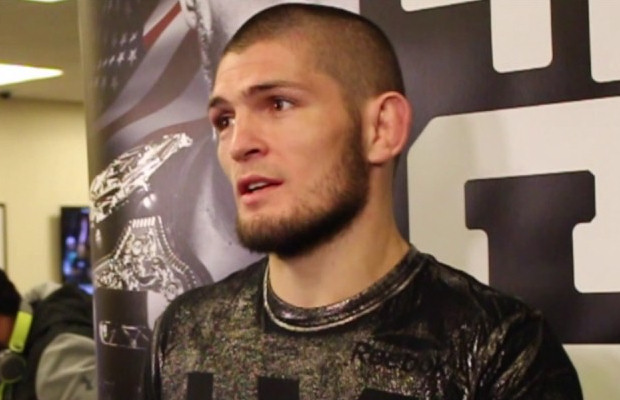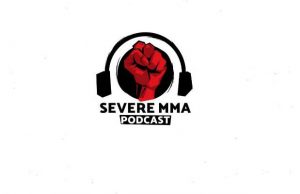

Saturday night, former two-division UFC champion and one of the biggest stars in the world, Conor McGregor, steps into the octagon to face current UFC lightweight champion, undefeated fighter and mixed martial arts juggernaut Khabib Nurmagomedov. It is one of the biggest and best fights in the history of the sport. If McGregor wins, he cements himself as the best fighter in the history of mixed martial arts.
If Khabib wins, he follows in the steps of Nate Diaz, becoming the next big star in mixed martial arts and legitimizing the hype train that has been built on dominant performances. This is an important fight for all parties involved, fans, analysts, journalists, fighters, investors and the organization itself.
However, that’s not what I want to focus on.
I want to take a closer look at the matchup, focusing on Khabib Nurmagomedov. Today, I am going to take a look at four reasons that will explain why Khabib Nurmagomedov loses to Conor McGregor at UFC 229.
Front Runner
Khabib hasn’t faced any real adversity. No one has been able to force him into a phase of mixed martial arts that he doesn’t want to be in. Michael Johnson, Abel Trujillo, Rafael Dos Anjos, Edson Barboza, Kamal Shalorus, Pat Healy, Thiago Tavares were all taken down. Each and every one of those fighters was taken down EASILY. Where they proceeded to be bullied and outclassed on the ground.
Even when the takedown wasn’t there, as was the case versus Al Iaquinta, the fear of his wrestling/groundwork holstered Iaquinta’s offense as he was willing to concede striking exchanges (no matter how bad they were) in favor of allowing Khabib to create extended grappling exchanges.
Strikers sought to avoid engagements with Khabib, trying to find the homerun shot instead of working a balanced, disciplined and structured approach to striking. This would have exposed Khabib’s shortcomings technically and strategically. Both Johnson and Barboza were able to briefly expose some of these shortcomings, before being summarily and brutally beaten by the lightweight champion.
The question has to be then asked, what happens to Khabib if he gets hurt? Will he continue to push the pace? Is he willing to walk through fire to get to the spots he wants? What if he can’t get in or stay in the positions he needs? What if he needs to work twice as hard? Will he get tired? Will he be able to finish takedowns? Will he keep pursuing them? If he does pursue them, will his pursuit of them end up with him getting stopped?
People like to say Conor folds when things don’t go his way, but the fact is we have seen him fight through injury, exhaustion, and after taking huge amounts of punishment. Has he been finished? Yes. But for Khabib, we have never seen him forced to go to his “plan B”. We have no idea how he will react if things don’t go smoothly, or, worst case scenario, they go badly.
The UFC historically has seen the most dominant fighters routinely exposed when not able to dominate with “plan A”. Just look at Ronda Rousey, Holly Holm, Francis Ngannou, Junior Dos Santos, Daniel Cormier. This is just a short list of previously “unbeatable” fighters who were thoroughly beaten when what usually happens didn’t happen.
Footwork
Khabib’s footwork was lacking when he came into the UFC, and more than six years later it is progressively worse; if you don’t believe me watch his fights. Khabib applies a lot of pressure, and luckily for him, the majority of mixed martial artists don’t know how to effectively circle, pivot or cut angles. They also don’t know how to use feints or establish a consistent, much less, diverse/balanced jab. This allows Khabib to apply an inhuman amount of pressure against a litany of opponents who have no idea how to slow, disrupt, or get away from it.
Khabib has beaten some very good fighters, as listed above, but none of those fighters are known for their effective techniques for countering a fighter who is pressuring. This makes Khabib’s pressure look relentless, unavoidable, and it makes his footwork and spacing seem high level. I assure you this is NOT the case.
Khabib’s entries into and exits out of striking ranges/wrestling ranges are terrible when facing opponents with a hint of competent footwork work and distance management. Not only does he have a hard time getting the entries to finish or chain takedowns as he did versus Iaquinta, he has to over pursue and reach, which causes him to get countered and out positioned as he did versus Michael Johnson. Or else, he ends up stalking an opponent, failing on takedowns, and walking into big shots as he did versus Edson Barboza.
None of those fighters have McGregor’s distance management. They can’t close distance, they can’t maintain distance, and they can’t extend distance when mildly pressured. McGregor cannot only navigate distance under duress, but he can also find angles, lead, counter, and circle out; regardless of whether an opponent is trying to get him to the fence, get their hands on him in open cage, or get in range to make efficient attempts at getting takedowns.
Chad Mendes got Conor down, Eddie Alvarez got him to the fence, Nate Diaz had success pressuring Conor, and Khabib is a better wrestler/grappler than all of them. But, he isn’t better at applying pressure, cutting a cage, and getting into takedown/striking range effectively. Not only are they better with footwork and positioning, but they are also all better at using strikes, feints to bridge distances and create clean entries.

Durability
Part of Khabib’s success as a fighter is based on his ability to intimidate opponents. Now skills can be intimidating, especially when a fighter knows they are dramatically outclassed in an area of mixed martial arts. Then guys will either become defensively minded, trying to avoid any and all exchanges to avoid being put in spots they can’t win in, or they change their approach altogether. Whether it’s not throwing as much, avoiding grappling, throwing Hail Mary strikes or working as below average counter punchers.
Why do they do this? Because Khabib has been shown to be a juggernaut, incapable of being pushed back or hurt, on top of his desire to force grappling exchanges. A guy who can’t be hurt, can’t be pushed back, and can’t be slowed, who wants to get his hands on you, is a scary proposition.
But the fact of the matter is Khabib’s defense isn’t good. His grappling acumen and the reputation of his durability make guys hesitate from putting shots together against him, trying a long-term approach by working the body/legs or using an active jab, or looking to aggressively counter his pressure. Guys don’t set up their shots or attack multiple targets consistently because they don’t think it will work and will result in them being taken down.
None of these fighters seem to understand loaded up, telegraphed, obvious shots are easier to defend and counter with takedowns. They are actually easier to absorb because you see them coming. So they assist in their own demise through ineffectiveness and inefficiency. McGregor won’t be warded off. He will aggressively counter. He will set up strikes off of feints. He will attack multiple targets. He will challenge Khabib’s legendary mental and physical durability, which may be Khabib’s downfall, as much of his pressure and grappling is built around the idea he can’t be dissuaded; he can’t be stopped. Conor McGregor ain’t buying that and will risk getting taken down or worn down to find out how much Khabib is able and WILLING to take.

One Direction
Khabib has shown no inclination to work off of his back foot or even stand his ground. Like many mixed martial artists (especially the ones at AKA), he likes to get in your face, back you up; rough you up, and wear you out. On the ground, he works almost exclusively from a dominant, secured position; at worse, he works from neutral positions when a guy attempts a takedown. Khabib hasn’t been forced to be on his back whether being controlled, or whether having been rocked and trying to recover under a fusillade of strikes.
This lack of versatility is a problem, especially if Khabib is hurt or tired. He doesn’t have another avenue to take to victory. If he can’t walk you down or chase you down, his chances to win drop off DRAMATICALLY. Khabib lacks the defence, counter striking and footwork necessary to avoid being pushed back or beaten up if a fighter can halt his forward progress. Much like stable mates Daniel Cormier, Cain Velasquez, and Luke Rockhold, if Khabib cannot dictate pace or place of the fight he can’t win.
McGregor can stand his ground and counter, he can fight off the back foot and aggressively counter, he can fight off the back foot and use a jab. Conor can also come forward throwing volume, come forward behind a jab, or he can use angles to create openings for front kicks, spin kicks or lead uppercuts. McGregor can do this if he has been hurt, if he is tired, he can do it early or late. He has done it versus Mendes, Aldo, Holloway, Alvarez, and Diaz. Khabib can only do one thing, come forward, and he isn’t very efficient in doing so; nor is he defensively sound or particularly effective striking when doing so either.
So if Khabib is vulnerable and inefficient when he plays to his strength, what do you expect to happen if and when he can’t press forward like he wants? When he has stood still, he hasn’t shown any ability to counter or attack. Watch the fight versus Barboza. When Khabib stood his ground, not only was he unable to get lead or counter, he was turned immobile and had to resort to covering up and waiting for Edson to stop striking before he became offensive again. He only attacked or countered when Edson was backing up.
I am not saying Khabib can’t win. He is undefeated for a reason. He is champion for a reason. He has beaten a list of quality opponents, with various levels of experience, accomplishments, durability, skill, and styles. And he has done so in dominating fashion. So he is the “real deal”, but that doesn’t make him unbeatable. The very strengths he has become so well known for could very well be the same things that will lead to his downfall versus McGregor.
….
Check out or video feature breakdowns of the fight from Ariel Helwani, Luke Thomas, Patrick Wyman and Petesy Carroll.



